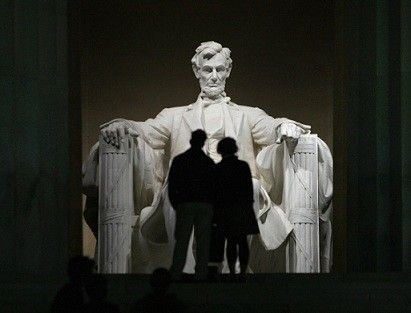Supreme Court Health Care Decision - Will It Boost Obama Or Romney More?
Analysis

If someone asks you which candidate, President Barack Obama or Republican Party nominee-designate Mitt Romney, is likely to benefit more, electorally, from the U.S. Supreme Court's stunning decisin Thursday to uphold the U.S. health care reform act, mention to him/her, It may have little impact,overall.
To be sure, a strong argument can be made that former Massachusetts Gov. Romney and the Republicans will benefit more.
No New Taxes - No Health Care Tax
The Affordable Care Act, commonly known as Obamacare, and the higher tax on upper income adults that goes with it, has the capacity to serve as a 'rallying cry' for GOP conservatives, particularly this Tea Party-dominated conservative manifestation, as the faction staunchly opposes any increase in taxes -- even if they take the form of the elimination of a tax subsidy. What's more, the Tea Party faction most certainly opposes the 0.9 percent increase in the Medicare tax on individuals with annual incomes over $200,000 (over $250,000 for a married couple filing jointly) that will take effect on January 1, 2013.
Hence, if leveraged properly, Romney can use the Supreme Court's decision as fodder to rally the conservative troops to his side, arguing that, despite his past moderate stance on many issues, support for me is a vote to repeal the new health care tax, and support for Obama is a vote for the new tax.
That anti-tax stance should help Romney raise campaign funds from the sizeable and influential no-tax coalition -- and that money will come in handy as Romney seeks to win the pivotal battleground states of Florida, Pennsylvania, Ohio, North Carolina, Colorado and Nevada.
Further, Romney's pitch to the no-tax rank and file can be duo-fold. First, don't look for another legal challenge of Obamacare -- it isn't likely and a high court overruling is even less probable, as long as John Roberts is chief justice. Second, Romney can argue to conservatives that he may not be your picture of an ideal conservative, but you know what you're going to get with Obama and the Democrats -- a tax increase -- guaranteed. That pitch could increase conservative voter turnout in the campaign's final months -- not an insignificant development in a 2012 presidential election that may hinge on one state's result!
President To Base: We Delivered
Can an 'advantage Democrats' argument be made from the Supreme Court's decision? Sure.
For all of the twists and turns (and melodrama) of the U.S. health care reform act, President Obama can turn to Democrats, and in particularly, to his base -- which includes: the poor, the working poor, the elderly, the disabled, immigrants, and students, among other groups -- that I may not have been perfect, but I did what I said I would do -- created a health care system in which every person has health care insurance, with help for those who cannot afford the cost of health care premiums.
Simply, the U.S. health care reform act is the biggest social policy change in the United States since President Lyndon B. Johnson, leader of the Great Society, signed Medicare, the health insurance program for senior citizens, into law in 1965.
In short, Obama has delivered for his base -- he's made the United States a more-compassionate nation. And that should resonate with those aforementioned disadvantaged members of society, and also with influential, middle/upper income voters, who likewise may contribute more to Obama and other Democrats' campaigns and may turn out in greater numbers in November -- developments that will aid the battleground state efforts.
In The End, Supreme Court Decision Could Be 'A Wash'
Hence, the Supreme Court's deciosn, given today's polarized electorate, could end up being, plausibly, 'a wash,' with a net-zero impact on the 2012 election total. And if that's the case the election's issues will remain the same.
Political science survey research tells us that most American voters tend to make up their minds whom to vote for about five months before November's Election Day, with the short-term factors, or issues, also being set at that time. This year's no. 1 issue? You guessed it: the U.S. economy and jobs.
Essentially, the American people view the president as the economist above all the economists. President Obama's performance regarding the U.S. economy has been mixed or fair.
On the one hand, the U.S. unemployment rate is still an unacceptably high 8.2 percent, and the nation is still short about 10 million full-time jobs.
On the other hand, the U.S. economy is still growing and the nation has progressed substantially from the depths of the Great Recession, which started under President George W. Bush, who left office with the economy losing more than 500,000 jobs per month.
Further, if the election was held today, as July dawns, Obama would win by a modest margin, with 295 to 305 electoral votes.
Moreover, with the health care issue 'a wash,' and provided the U.S. economy's condition does not worsen substantially, that should be the outcome on November 6, as well.
--
© Copyright IBTimes 2025. All rights reserved.





















